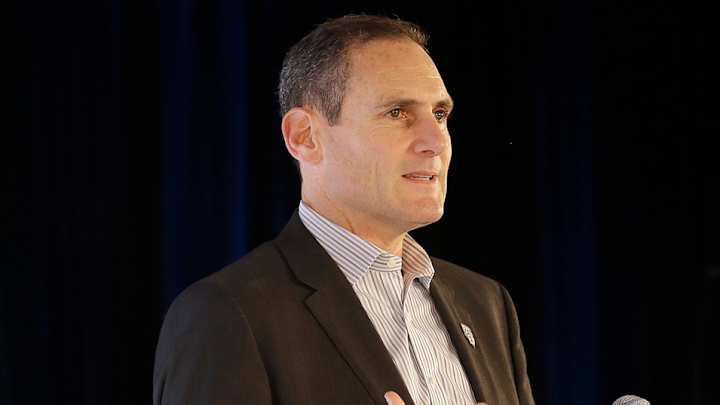Pac-12 votes to guarantee student-athlete scholarships

Pac-12 officials Monday voted to adopt new reforms concerning the treatment and compensation of student-athletes, including the guaranteeing of scholarships for four years and the provision of health care for athletics-related injuries up until four years after an athlete leaves an institution.
The changes were announced in an enthusiastic release on the website of the conference's media channel, the Pac-12 Network.
In addition to the four-year scholarship guarantee and medical benefits guarantee, athletes who leave school before graduating will be allowed to return to school to complete their degree using the remainder of their original scholarship funds. Furthermore, students who transfer between Pac-12 institutions will be able to receive scholarships immediately. It was unclear if this would affect the current 'transfer rule,' which mandates most athletes sit out a year after transferring between institutions.
The presidents and chairmen of each of the conference's 12 universities voted to adopt the changes. The chairmen of the conference's 'CEO Group,' Washington State University president Dr. Elson S. Floyd, said the reforms "assure better support for all our student-athletes, reinforce that academics come first, and address the financial and health needs of our students.”
• ELLIS: Breaking down NCAA's approval of Power Five autonomy
Pac-12 chairman Larry Scott hailed the changes as "preserving the essence of the collegiate experience."
“As a former student-athlete myself, I believe these reforms will mean a great deal to student-athletes in the Pac-12. These reforms will ensure they enjoy a positive collegiate sports experience, and graduate with a meaningful college degree.
This set of reforms also addresses various health and financial concerns that student-athletes have expressed to me in the many conversations I’ve had with them, while preserving the essence of the collegiate experience that has served so many student-athletes so well."
Earlier this year the NCAA Division I Board of Directors voted to grant autonomy in the form of increased legislative power to the Power Five conferences - the SEC, ACC, Big 12, Big Ten and Pac-12 - to determine their own student-athlete's benefits, including the full cost of attendance and extended medical benefits for student-athletes.
While autonomy was not required for the Pac-12 to adopt the changes it did Monday, the new scholarship and medical benefits structure could be a sign of a broader trend throughout collegiate athletics. The Big Ten pledged to guarantee its athletes' scholarships earlier this month.
The Power Five conferences are expected to present an agenda on the new governance structure at the NCAA meetings in January.
- Will Green
